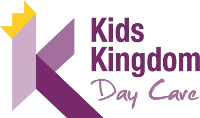


The EYFS(Early Year Foundation Stage) Curriculum for the Under 5's
The EYFS is a very important stage as it helps your child get ready for school as well as preparing them for their future learning and successes. From when your child is born up until the age of 5, their early years' experience should be happy, active, exciting, fun and secure; and support their development, care and learning needs.
It has been an initiative undertaken by The Office for Standards in Education, Children's Services and Skills (Ofsted)to provide children with good-quality education and care in their earliest years. This endeavour started with the notion that it can help early years children succeed at school and later in life. There have been planned reforms to raise the standard and quality of the early year's workforce, give high-quality providers the freedom to offer more places and give parents more choice.
Listed below are some of the benefits which outdoor play offers over and above mere enjoyment-
Children from birth to five years of age follow a national curriculum entitled EYFS (Early Years Foundation Stage). There are numerous daycare nurseries in Bucks that adhere to all the protocols as cited under government regulations. The main aim is to focus on the 7 most important stages of learning which are discussed below:
3 Prime Areas
1. Communication and Language
This is regarded as the most important area of development for a child. This facilitates active learning and developing concepts such as small or big. The basic objective is to develop your child's analytical skills and answer questions as well as ask them.
2. Physical Development
This phase is generally for children in the age group of 8 months to 1 year. At this phase, parents should emphasise on developing skills such as holding one's bottle or cup. Further learning reflexes like pushing, catching and other motor controls comes in the next phase. The last phase may include climbing stairs as a part of physical development.
3. Personal, social and emotional development
This is a crucial stage where a child is taught the importance of relationships. Like for example- giving comfort to people in times of distress,learning to be confident in talking to other children when playing, and to talk freely about own home and community.
4 Specific Areas
1. Literacy
Even when your child is very young and is not yet able to talk, talking to them helps them to learn and understand new words and ideas. Examples include recognising familiar words and signs such as own name and advertising logos.
2. Mathematics
This subject should be inculcated in the everyday curriculum of the child. Recognising numerals 1-5, understanding of shapes and simple counting techniques can be very useful to develop your child's foundation in the subject.
3. Understanding the world
All the fun activities that you do with your child at home are important in supporting their learning and development, and have a really long lasting effect on your child's learning as they progress through school.
4. Expressive Arts and Design
This phase focuses on developing interests in colors, musical instruments, and story narration to help nurture a child's imagination power. Numerous daycare nurseries in Bucks have such sessions in their routine.
The most important thing is to find the correct nursery which has started with these practices.Professionals teaching your child will make sure that these activities are suited to meet your child's needs.Your childwill be learning skills, acquiring new knowledge and demonstrating their understanding through 7 areas of learning and development while at the same time develop on their individual needs and interests.


